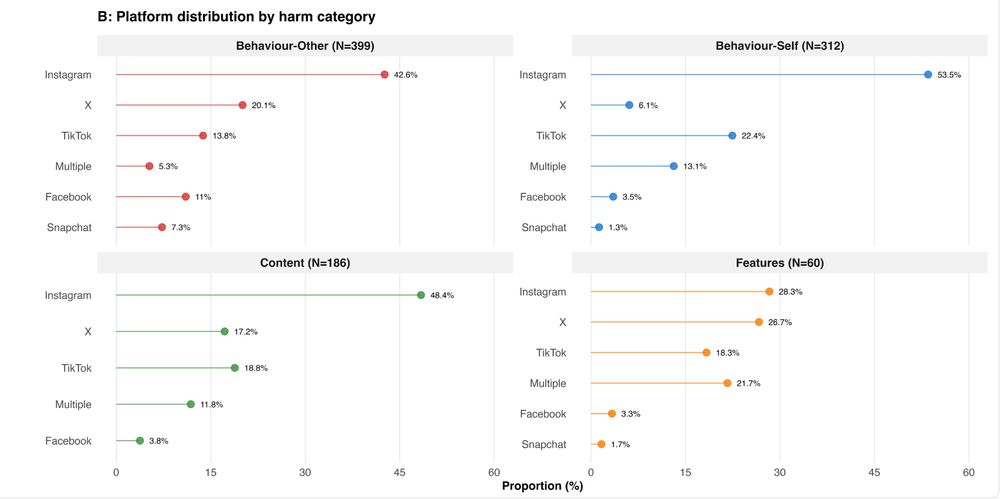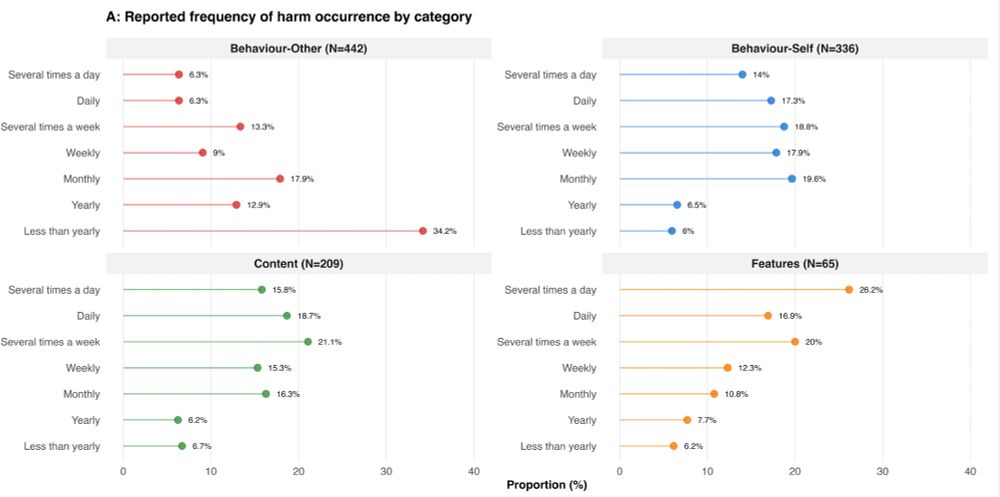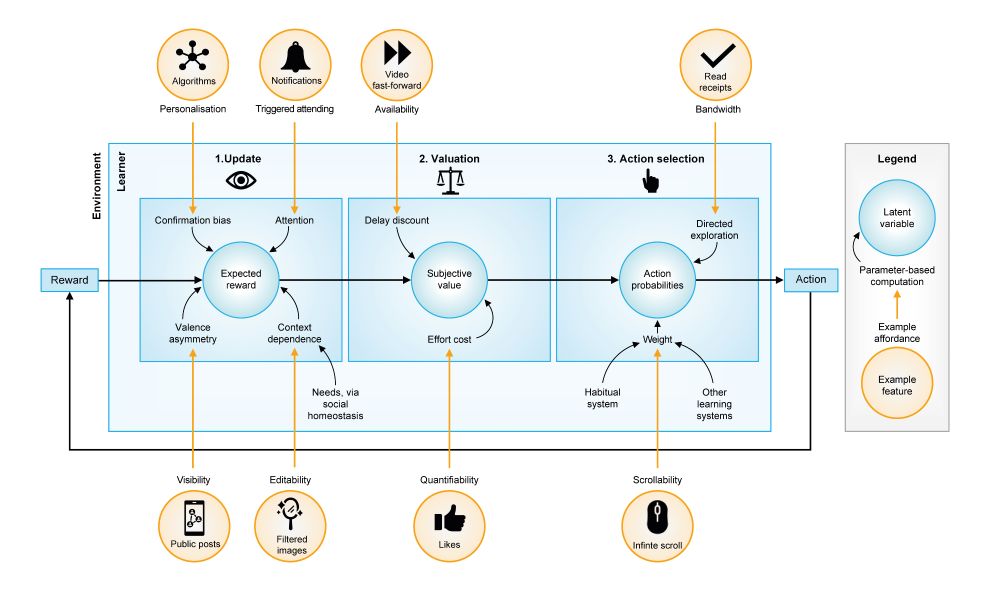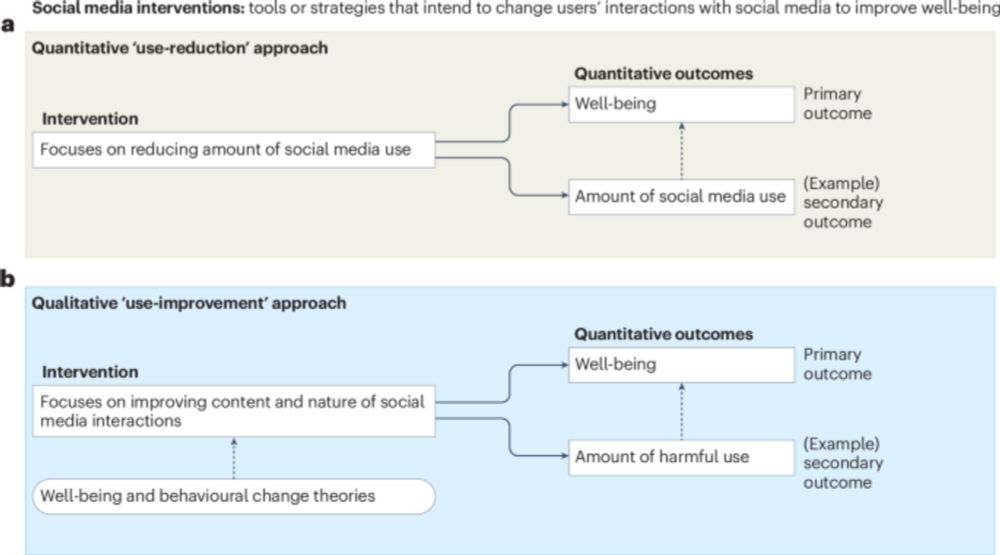https://amiraskeggs.com/
You can read it here: theberlinliteraryreview.com/amira-skeggs...
Head over to the site for a read - link in bio.
As always, a huge thank you to our talented contributors!
🧡

You can read it here: theberlinliteraryreview.com/amira-skeggs...
𝐘𝐨𝐮𝐭𝐡 𝐏𝐞𝐫𝐬𝐩𝐞𝐜𝐭𝐢𝐯𝐞𝐬 𝐨𝐧 𝐒𝐨𝐜𝐢𝐚𝐥 𝐌𝐞𝐝𝐢𝐚 𝐇𝐚𝐫𝐦𝐬: 𝐀 𝐋𝐚𝐫𝐠𝐞-𝐒𝐜𝐚𝐥𝐞 𝐌𝐢𝐜𝐫𝐨-𝐍𝐚𝐫𝐫𝐚𝐭𝐢𝐯𝐞 𝐒𝐭𝐮𝐝𝐲
osf.io/preprints/ps...
🧵
Using a novel micro-narrative method, we collected ~ 900 first-person accounts of social media harms from young people across the UK and US.


𝐘𝐨𝐮𝐭𝐡 𝐏𝐞𝐫𝐬𝐩𝐞𝐜𝐭𝐢𝐯𝐞𝐬 𝐨𝐧 𝐒𝐨𝐜𝐢𝐚𝐥 𝐌𝐞𝐝𝐢𝐚 𝐇𝐚𝐫𝐦𝐬: 𝐀 𝐋𝐚𝐫𝐠𝐞-𝐒𝐜𝐚𝐥𝐞 𝐌𝐢𝐜𝐫𝐨-𝐍𝐚𝐫𝐫𝐚𝐭𝐢𝐯𝐞 𝐒𝐭𝐮𝐝𝐲
osf.io/preprints/ps...
🧵
Using a novel micro-narrative method, we collected ~ 900 first-person accounts of social media harms from young people across the UK and US.
**Old Strategies, New Environments: Reinforcement Learning on Social Media**
In this Review, we argue that the computational framework of Reinforcement Learning can help us understand social media behaviour:
www.sciencedirect.com/science/arti...

We propose a new framework for designing 𝘀𝗼𝗰𝗶𝗮𝗹 𝗺𝗲𝗱𝗶𝗮 𝗶𝗻𝘁𝗲𝗿𝘃𝗲𝗻𝘁𝗶𝗼𝗻𝘀 that support well-being, grounded in self-determination theory 🧵
www.nature.com/articles/s41...

We propose a new framework for designing 𝘀𝗼𝗰𝗶𝗮𝗹 𝗺𝗲𝗱𝗶𝗮 𝗶𝗻𝘁𝗲𝗿𝘃𝗲𝗻𝘁𝗶𝗼𝗻𝘀 that support well-being, grounded in self-determination theory 🧵
www.nature.com/articles/s41...
🕰️ 5:32pm
📍 G302
Video: www.youtube.com/watch?v=RCZS...






Looking forward to working on this with great team members and collaborators across the UK ⬇️
www.cam.ac.uk/research/new...

Looking forward to working on this with great team members and collaborators across the UK ⬇️
www.cam.ac.uk/research/new...


@jjxe_ and I created this toolkit to help young people navigate mental health resources. It’s free, reviewed by psychologists and easy to use.
@jjxe_ and I created this toolkit to help young people navigate mental health resources. It’s free, reviewed by psychologists and easy to use.

